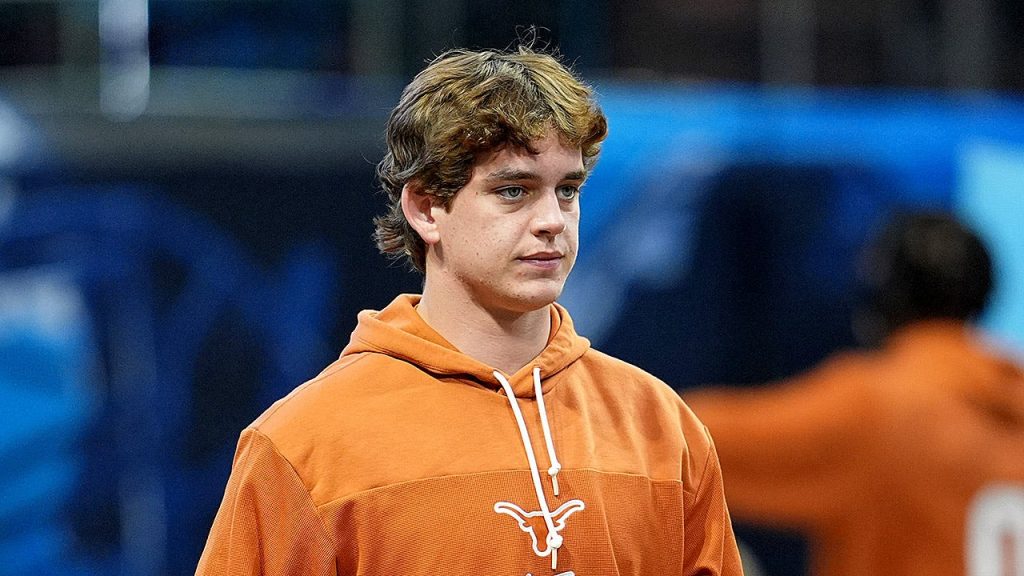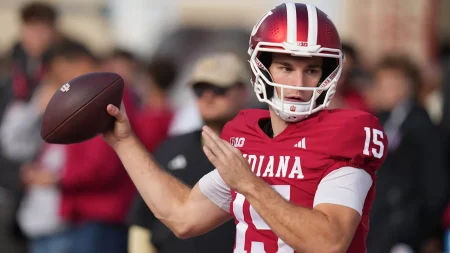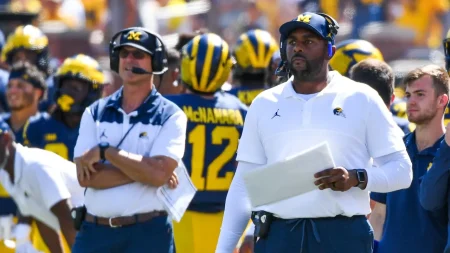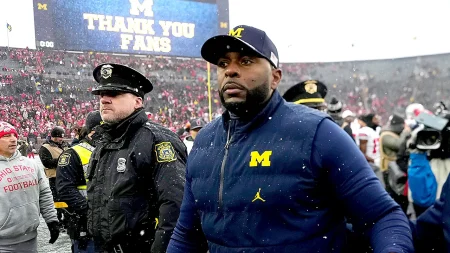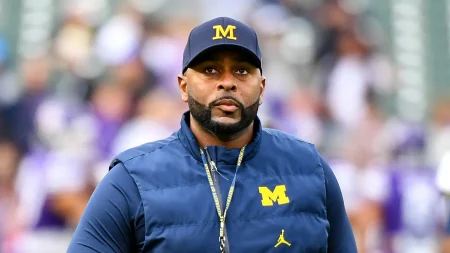Arch Manning’s Debut as Texas Starting Quarterback: A Mixed Reception
After years of anticipation, Arch Manning finally took the helm as Texas’ starting quarterback this past weekend, but his debut against Ohio State left many with more questions than answers. The Longhorns fell 14-7 to the Buckeyes, with Manning completing passes for 170 yards, throwing one touchdown and one interception. The performance drew considerable scrutiny, especially given the weight of expectations placed on the young quarterback who carries one of football’s most prestigious surnames. As the nephew of NFL legends Peyton and Eli Manning and grandson of Saints icon Archie Manning, Arch has lived with extraordinary expectations since his high school days when he was one of the nation’s most highly recruited players before choosing Texas.
The spotlight on Manning’s first start was intensified by the presence of numerous NFL scouts and team representatives who came to evaluate the player once projected as the potential first overall pick in next year’s draft. One anonymous scout offered a particularly candid assessment to Fox Sports, saying, “Honestly, it was a little hard to watch. He’s just been hyped up so much. Almost no matter what he did, he couldn’t have met those expectations. But I will admit that I thought he’d be better than he was.” This harsh critique reflects the double-edged sword of Manning’s family legacy – it opened doors but also created expectations that would be challenging for any young quarterback to fulfill, especially in a high-pressure matchup against a top-ranked opponent like Ohio State.
Manning himself showed maturity in addressing his performance, acknowledging on Monday that “I’ve got to play better.” This self-awareness suggests a grounded perspective that could serve him well as he navigates the scrutiny that comes with his position and lineage. Other evaluators offered more nuanced takes on his performance, with some pointing to the exceptional talent in Ohio State’s defensive backfield as a significant factor in Manning’s struggles. Several scouts maintained a more patient outlook, emphasizing that it’s “too early in the process” to make definitive judgments about Manning’s NFL potential based on a single game against elite competition.
In contrast to some of the harsher critiques, former New York Jets scout Daniel Kelly expressed optimism about what he saw from Manning. Kelly wrote on social media that he was “actually encouraged” by the quarterback’s performance, noting specific improvements in Manning’s game: “He’s showed improvement in several key areas. He’s gotten better at seeing the whole field. He’s better at going through his progressions and delivering more accurately on his 2nd and 3rd reads. And he’s A LOT better at feeling pressure.” Kelly highlighted several plays where Manning effectively evaded pressure while maintaining downfield vision or used his mobility to gain yardage when necessary – skills that translate well to the modern NFL game.
Manning’s situation at Texas mirrors his family’s legacy in interesting ways. Both Peyton and Eli faced enormous expectations early in their careers, with mixed results before eventually finding their footing as professionals. Arch’s path has been somewhat different, having spent his first two years at Texas backing up Quinn Ewers rather than starting immediately. This apprenticeship period may ultimately prove beneficial, allowing him to develop without the immediate pressure of being the program’s centerpiece. The coming weeks will be crucial for Manning as he works to build confidence and consistency, with a more favorable matchup against San Jose State on September 6 potentially offering an opportunity to showcase his talents in a less pressurized environment.
As the 2025 Heisman Trophy odds reflect, Manning’s stock has taken a hit following his performance against Ohio State, with other quarterbacks like Garrett Nussmeier and Nico Iamaleava seeing their prospects rise. However, this early-season fluctuation may ultimately be a blessing in disguise for Manning, reducing some of the external pressure while allowing him to focus on development rather than living up to impossible expectations. The true measure of Manning’s potential won’t be found in a single game against one of college football’s elite programs, but in how he responds to adversity and grows throughout his first season as Texas’ starter. With the right coaching and continued development, Manning still has every opportunity to write his own chapter in his family’s storied football legacy.




